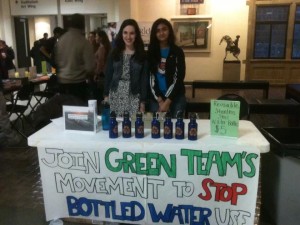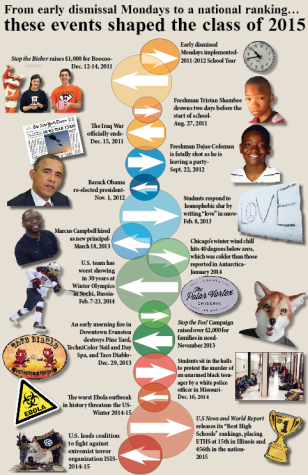Green myths debunked
Go green! Or don’t? Students are under the common misconception that they are being “green.” However, many of the actions Evanston students are taking to live greener lifestyles actually play into common green myths.

Myth 1: Organic food is the greener choice.
It can be at times, but chemicals used on organic farms aren’t always less harmful. A suggestion c ould be that all people focus on supporting local small farms. Factory farms emit a huge amount of greenhouse gases and treat their animals poorly, but small farms tend to use more sustainable practices, according to Natalie Jacobson, Green Team president.
Myth 2: Recycling will save the world.
The three R’s are reduce, reuse, and recycle. The two most important are reduce and reuse. People tend to think that recycling alleviates them of responsibility, but in reality, recycling is a complex and difficult system. At ETHS, what students don’t realize is that in our cafeterias, when you put bottles, cans, etc. into our recycling bins, if there is any food residue on the items, the entire bin is thrown in the trash. Recycling is good as a last resort, but students should focus on reducing and reusing first, and then recycling, according to Natalie.
Your donation will support the student journalists of the Evanstonian. We are planning a big trip to the Journalism Educators Association conference in Philadelphia in November 2023, and any support will go towards making that trip a reality. Contributions will appear as a charge from SNOSite. Donations are NOT tax-deductible.










parts play • Oct 3, 2014 at 1:21 am
Do you have any video of that? I’d want to find out some additional information.